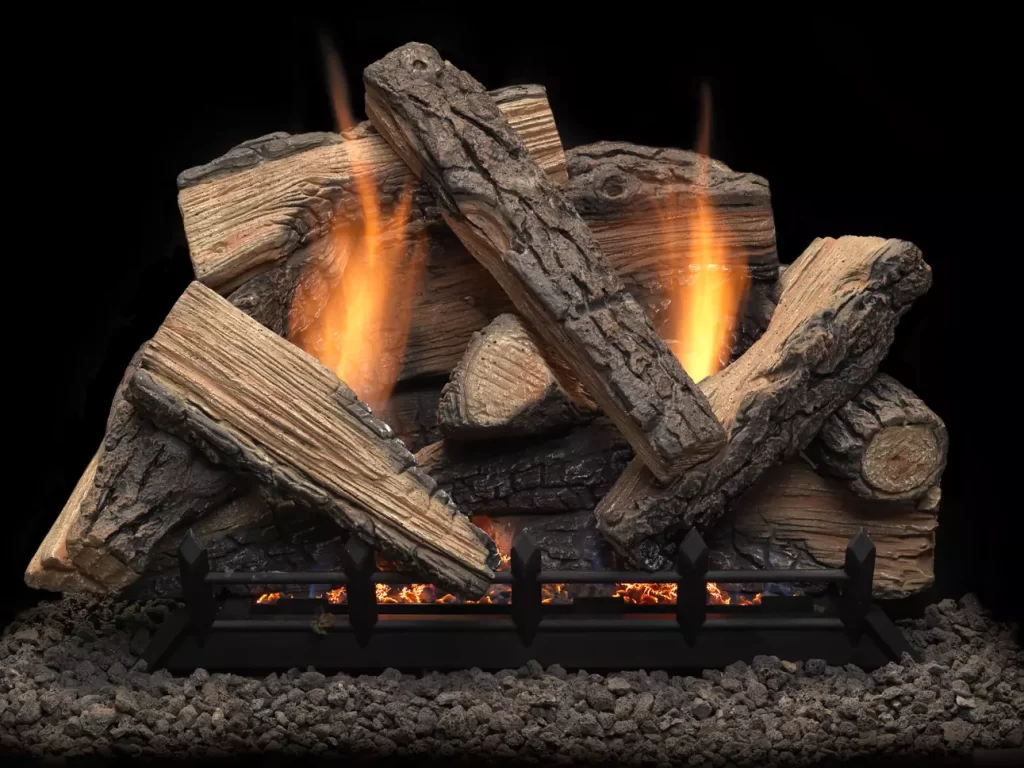
Understanding Gas Fireplaces and Cost-Efficiency
Gas fireplaces are a popular choice for homeowners seeking cost-effective heating options. By strategically installing a gas fireplace in the area of the home where most time is spent, homeowners can significantly lower their heating bills, potentially saving up to 40% on heating costs. For example, if a family spends most of their time in the living room, installing a gas fireplace in that space can effectively reduce the need for central heating and decrease overall energy consumption.
When it comes to determining the cost-efficiency of a gas fireplace, several factors come into play. The size of the flame, quality of insulation, room size, thermostat settings, and outdoor temperatures all affect the fuel consumption and cost-effectiveness of a gas fireplace. For instance, a well-insulated room with a smaller flame and optimized thermostat settings can maximize the cost-efficiency of the gas fireplace by reducing unnecessary gas consumption and maintaining a comfortable temperature.
Understanding these factors is crucial for homeowners who are considering integrating a gas fireplace into their homes. By carefully evaluating these elements, homeowners can make informed decisions about the potential cost savings and efficiency benefits of incorporating a gas fireplace into their heating strategy.
Types of Gas Fireplaces and Their Cost-Efficiency Ratings
When considering gas fireplaces, it’s essential to understand the different types available and their respective efficiency ratings. One of the main distinctions in gas fireplaces is between vented and vent-free options. Vented fireplaces, although less efficient in terms of energy consumption, require minimal management, making them a convenient choice for many homeowners. On the other hand, vent-free gas fireplaces offer higher energy efficiency, but they necessitate proper installation and management to ensure safe and effective operation.
Efficiency ratings play a crucial role in helping homeowners make informed decisions about the most suitable gas fireplace for their specific needs. For example, the Annual Fuel Utilization Efficiency (AFUE) and EnerGuide ratings are commonly used to measure the effectiveness of converting gas into heat. These ratings provide valuable insights into the performance of different gas fireplaces, enabling homeowners to choose the most efficient option that aligns with their heating requirements and energy-saving goals.
For instance, a homeowner living in a region with harsh winters may prioritize energy efficiency and cost savings, leading them to opt for a vent-free gas fireplace with a high AFUE rating. Conversely, someone in a milder climate may value the convenience and low maintenance of a vented fireplace, despite its lower energy efficiency. Understanding the efficiency ratings of gas fireplaces empowers homeowners to make well-informed choices that best suit their unique circumstances and preferences.
Cost-Efficiency and Usage Tips for Gas Fireplaces
When determining the cost-efficiency of a gas fireplace, it’s essential to consider various factors that can affect its fuel consumption and overall efficiency. One of the primary considerations is calculating the cost of running a gas fireplace, which involves taking into account the Btu (British thermal unit) rating of the fireplace and the cost of gas in your area. By multiplying the Btu rating by the cost of gas and dividing by 100,000, you can estimate the cost of operating the fireplace. This calculation can provide valuable insights into the economic implications of using a gas fireplace as a heating option in your home, helping you make informed decisions about its usage.
Moreover, adjusting the heat settings of a gas fireplace can play a pivotal role in reducing energy consumption and cost. By optimizing the thermostat settings and flame height, homeowners can effectively manage the output of the fireplace, ensuring that it operates efficiently without unnecessary energy wastage. This not only helps in controlling fuel consumption but also contributes to cost savings over time. Additionally, regular maintenance of the gas fireplace, including cleaning and servicing, is crucial for ensuring its optimal performance and efficiency. It can enhance the longevity of the fireplace and prevent any potential issues that might lead to increased energy consumption. These usage tips underscore the importance of proactive measures in maximizing the cost-efficiency of gas fireplaces in residential settings.
Environmental and Cost-Efficiency Benefits of Gas Fireplaces
Gas fireplaces are known for their cost-effectiveness and environmental friendliness. When compared to wood-burning fireplaces, gas fireplaces offer a convenient and almost maintenance-free heating solution that comes in various styles, providing homeowners with flexibility and aesthetic appeal while lowering their environmental impact. For example, a homeowner can install a modern gas fireplace insert, which not only enhances the ambiance of the living space but also significantly reduces the consumption of natural resources, making it a sustainable choice for heating.
Furthermore, the use of gas fireplaces aligns with sustainable living practices and offers a viable solution for individuals seeking to reduce their environmental footprint. By choosing a gas fireplace over traditional wood-burning options, homeowners can contribute to the reduction of air pollution and deforestation while enjoying the benefits of efficient and clean heating. This environmentally conscious choice not only lowers the carbon footprint of the household but also demonstrates a commitment to preserving natural resources for future generations.
Gas fireplaces, therefore, provide an attractive alternative that not only offers cost savings but also contributes to a greener and more sustainable living environment, making them a compelling choice for modern homeowners. To explore the wide range of gas fireplace options and their environmental benefits, readers are encouraged to visit the Dr. Sweep Chimney and Masonry Services, Inc. website for more details.
Heating Efficiency and Room-Specific Usage
Gas fireplaces are a popular choice for efficiently heating specific rooms or areas within a home. Whether it’s the living room, bedroom, or any other space, gas fireplaces provide focused warmth and comfort, making them an ideal supplemental heating option. For example, if you spend most of your time in the living room during the winter, installing a gas fireplace in that area can significantly lower your heating bills, contributing to overall cost-efficiency.
It’s important to note that while gas fireplaces are effective in heating specific areas, they are not designed to heat an entire house. Their efficiency in providing heat is best utilized when used to target and maintain the warmth in a particular room, creating a cozy and inviting atmosphere while reducing the reliance on central heating systems. By strategically utilizing gas fireplaces in this manner, homeowners can maximize energy efficiency and minimize heating costs. This approach aligns with the concept of zone heating, where specific areas or zones in a home are heated according to the occupants’ needs, thereby optimizing the use of energy resources and promoting cost-effective heating solutions.
Trusted Gas Fireplace Repair Service in Detroit, Rochester Hills, Ann Arbor & Surrounding Areas
At Dr. Sweep, we’re dedicated to maximizing your gas fireplace’s efficiency while minimizing costs. Take charge of your fireplace’s fuel consumption and savings by implementing the insights from our blog post. If you seek professional guidance or in need of a gas fireplace repair company in Detroit, Rochester Hills, Ann Arbor, or nearby locales, contact us today. Let our expertise ensure your fireplace remains a cost-effective and cozy centerpiece in your home, keeping you warm all season long.
Dr. Sweep
5119 Highland Rd #396, Waterford Twp, MI 48327
(248) 230-4392



